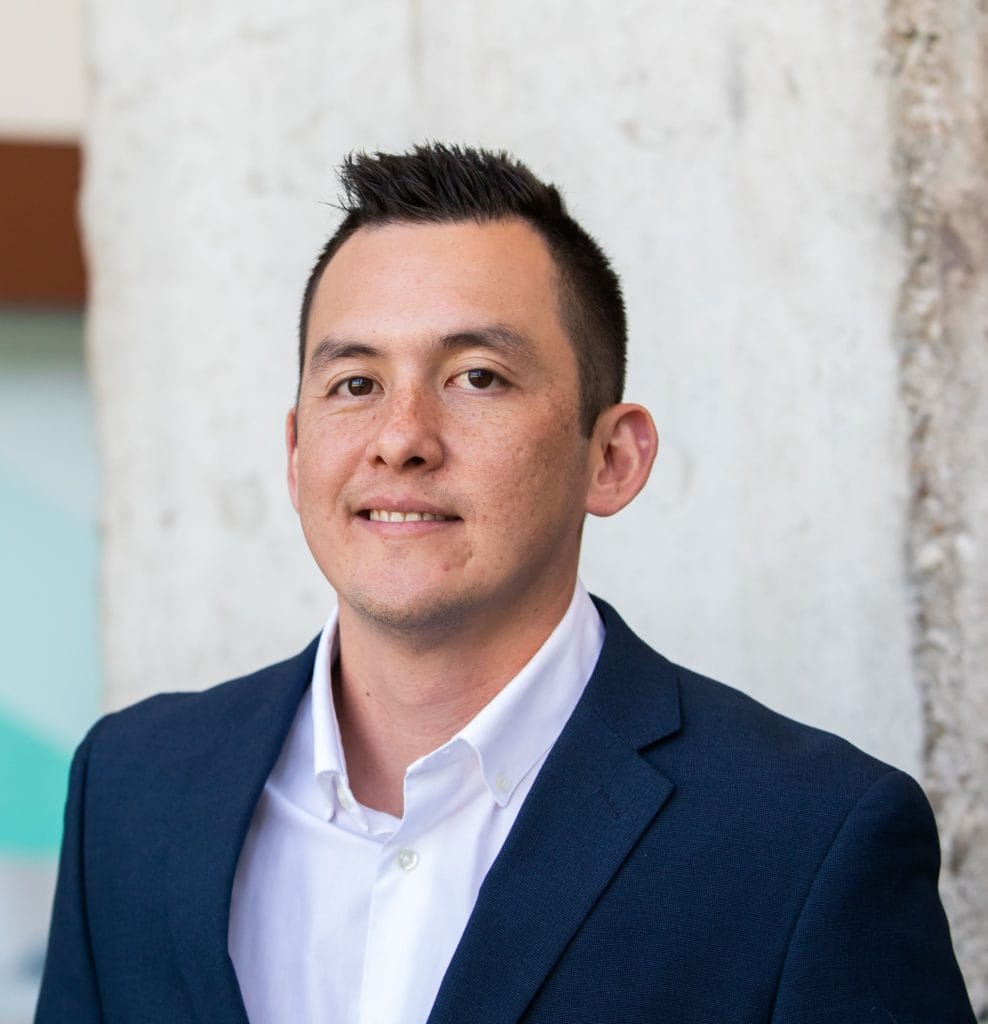A fund called the Nomad Investment Partnership had one of the greatest 13-year runs of all-time. Started by investors Nick Sleep and Qais Zakaria, Nomad went on to return 921.1%.
Compared to their benchmark, the MSCI World Index, Nomad beat it by 800%+ (performance of 921.1% vs 116.9%).
How did Sleep and “Zak” (Zakaria) do it?
In a rare interview with the two illustrious investors, William Green exposed the men’s top secrets to success in his fantastic book Richer, Wiser, Happier. And it really boiled down to three simple concepts:
- Quality
- Delayed gratification
- Scale economies shared
In this post, we will dive into the core philosophies that Zakaria and Sleep shared. It may sound simple, but quite profound—especially in contrast to the rest of Wall Street.
We will cover the following [Click to Skip Ahead]:
- Leading a Life Dedicated to Quality
- The Evolution of Nomad’s Investment Approach
- Delaying Gratification for Better Long-Term Results
- Nomad’s Best Long-Term Investments
- The Virtuous Cycle: Scale Economies Shared
- Applying Nomad’s Best Mental Models Today
These investors’ principles helped them to recognize great stocks such as Costco, Amazon, and Berkshire Hathaway, and load up at times when everyone else was running for the hills.
Leading a Life Dedicated to Quality
Nick Sleep and Qais Zakaria did not take the traditional path you might think a Wall Street “overnight success” might take.
Instead of stumbling through success and establishing personal values later, Sleep and Zakaria started with a core principle.
It was an overriding focus on high quality in your actions and decisions.

This was an idea that Nick Sleep stumbled upon when he was 20 years old, after reading a book called Zen and the Art of Motorcycle Maintenance: An Inquiry into Values.
Sleep and Zakaria met each other as peers; Sleep’s fund was a “client” of Zakaria’s investment bank. Shortly after meeting, Sleep recommended Zen and the Art of Motorcycle Maintenance to Zakaria, and it helped shape a critical decision during the formation of Nomad.
As William Green wrote in his book, in Zakaria’s (and Sleep’s) words to him:
“The very rapid rejection of things made life very straightforward. It was all about quality….Money was secondary. It was much more about doing a good job, a quality job, doing the right thing. I don’t think we ever took a decision which was driven by— (Nick Sleep:) —putting money in our pockets. Definitely not.”
Sleep and Zakaria emulated this core value by structuring their investment partnership far differently than any other hedge fund on Wall Street.
Their annual management fee was just enough to cover operating expenses (instead of 1% or 2% of a client’s assets), and they took 20% of profits only if they earned a 6% annual return.
It was more about doing the right thing, and doing it well, rather than earning as much money as their peers.
The Evolution of Nomad’s Investment Approach
Nick Sleep and Qais Zakaria had a complementary working relationship from the start.
Sleep was more of a generalist, while Zakaria was more of a specialist. Sleep had a wide range of intellectual interests, while Zakaria liked to really dive deep on a few.
Sleep owned 51% of the partnership from the start, while Zakaria owned 49%, to avoid stalemate conflicts. Sleep took the responsibility of Zakaria’s trust in him seriously, and this has led to a long-term friendship which still lasts to this day—long after retiring from the fund.
Nick and Zak started their fund in 2001 by buying “cigar butt” stocks.
Cigar butts are stocks that are so hated by the market that they are very, very cheap. It can be a seriously profitable way to invest, because as long as the company survives and the fear dissipates, the stocks can 2x, 3x, 10x or more in a short time.
The more hated the stock, in general, the more short-term upside for the investors brave enough to invest in a “left for dead” stock.
Sleep and Zakaria used this strategy to double their assets from 2001 to 2003, by hopping in-and-out of heavily discounted stocks and buying low and selling high.
Ironically, it was a fantastic stock pick that made Nick and Zak reconsider their strategy.
The “Mistake” of Stagecoach
In 2002, a stock called Stagecoach had crashed from £2.85 to 14 pence. Nomad loaded up, and sold when the stock rebounded to 60 pence.
But Stagecoach did not stop there.
In just 5 short years, the stock continued cruising higher and hit £3.68 by late 2007.
This was a humbling experience for Sleep and Zakaria. These investors realized that a long-term investment can be so much more powerful if a company, run by a great management, can compound earnings internally at a superior rate by keeping the long-term in mind.
I love the way that Sleep described this idea, talking about management of a company:
“If they’re thinking rationally and thinking about the long term, you can subcontract the capital allocation decisions to them. You don’t have to be buying and selling shares.”
With this profound insight, from a “costly” mistake by selling too early, Sleep and Zakaria adjusted their strategy to buying great companies instead of just really cheap companies.
Delaying Gratification for Better Long-Term Results
Wall Street can seem like a big casino, and it’s not hard to see why. With analysts constantly estimating next quarter’s results, and stock prices moving as these are adjusted, the nature of Wall Street is very short-term and emotional.
Sleep and Zakaria do not like this aspect of the stock market.
To find success with Nomad, they made intentionally contrarian lifestyle choices to turn away from the casino. These included:
- Setting up their office far away from major investment hubs
- Throwing all Wall Street sell-side research in the garbage
- Putting their Bloomberg Terminal in a hard to reach place, without a chair, so you couldn’t spend too much time on it
Doing all of these things and then focusing their stock analysis solely on the long-term, Nick and Zak were able to find great success in being contrarians.
What Made Nick and Zak Different
To be different on Wall Street means being a contrarian.
A contrarian is someone who is comfortable being away, often isolated, from the crowd.

This contrarian nature proved to be critical for Nomad, when they made a bold bet on Amazon in the midst of the 2008 crisis by putting over 20% of the fund’s portfolio in Amazon.
Putting 20% of your portfolio in a single stock is an extremely bold, and risky, decision for an investor who is trying to beat the market.
It often requires the fortitude to hold on during the toughest times.
This can be an extremely stressful and harrowing experience for even the most contrarian investor. It’s at that time, that the true ability to be a contrarian will be tested.
By trusting in their own research, rather than what the crowd was saying, Sleep and Zakaria had the ability to stay bold during their greatest test—and it rewarded them handsomely.
Nomad returned 404% in the 4 years following the crisis, a truly incredible, superhuman feat.
You have to think that all of their lifestyle decisions contributed to their ability to stay contrarian, and it all centers on delayed gratification.
Why Delayed Gratification Works So Well
The concept of delayed gratification is what makes contrarian behavior effective when investing.
Because Wall Street is so short-term focused, they are often concerned with whatever had been performing best lately. It’s almost like you can find Wall Street’s latest fashion by looking at the best 1-year or 3-year stock charts.
But great investor performance is not dependent on what’s happened recently, but rather what will grow slowly and steadily over the long term.
It is because of the power of compound interest.
Sleep and Zakaria understood just how powerful this can be when they made their mistake with selling Stagecoach too early.
By finding companies that are also long-term focused, an intelligent investor can simply invest in those same companies over the long-term, and find brilliant results.
The partnership’s greatest successes came from two famous long-term focused companies, Costco ($COST) and Amazon ($AMZN).
Nomad’s Best Long-Term Investments
Costco’s and Amazon’s leaders have long embodied the idea of delayed gratification in the way they have run their companies.
Remember that Wall Street is so short-term focused.
A greedy CEO can easily stack up a fortune by simply catering to Wall Street’s focus on quarterly earnings, and squeeze out maximum profit through many internal decisions.
But Costco and Amazon have flipped that idea.
Rather than wring their customers for the most profit possible, both companies have formulated a culture where they will continue to deliver outstanding value first, to reap great profits later.
They do this through their annual subscriptions—a Costco membership and Amazon Prime.
Costco transformed retail through their innovative big box, membership warehouse business model. The company charges a slim margin on its products, which accrues major savings to its members. Members reward the company by staying loyal and renewing their memberships each year, even as that price increases over time.
Wall Street did not understand Costco’s strategy for many years, as it went against the stereotype of cutthroat, capitalistic competition. Yet Costco’s approach created a compounding virtuous cycle, which leads to incredible growth as the company continues to succeed over time.
Amazon is taking a similar approach with its Prime memberships, constantly adding new features and perks, such as incredibly fast shipping and an impressive and increasing catalog of video streaming.
This delayed gratification approach to business can be so powerful because as a company grows, its value proposition to customers actually increases. It compounds.
By sacrificing short-term profits, you create long-term compounding, which gets better the longer it continues through a virtuous cycle.
The Virtuous Cycle: Scale Economies Shared
The reason that Costco and Amazon create compounding through delayed gratification is through economies of scale.
Economies of scale are a great competitive advantage for big companies.
As a company gets bigger, it can reduce costs because of its size.
For example, a retailer like Costco can negotiate a better price from a toilet paper manufacturer than you or I might, because Costco can place such a large order.
Instead of pocket the profit, Costco takes this discount and shares it with its customers. This makes customers loyal to Costco, and causes them to tell their friends. As more and more customers are added to the Costco model, the company can negotiate an even better deal from manufacturers—creating even more value for all members.
In other words, business growth reduces costs, which reduces prices, which attracts more growth.
It is a virtuous cycle.

Costco’s model is even more powerful as it has gotten bigger, as is Amazon’s.
This key insight from Zakaria and Sleep created such conviction that they loaded up the Nomad fund with “scale economies shared” types of stocks.
The rest, as they say, is history.
Nick and Zak would be the first to tell you that this is not some innovative concept, it has been around for decades, even dating back to the Model T.
But it is a powerful and useful mental model that all investors can learn from, and maybe find that even a fraction of their success as extremely worthwhile.
Applying Nomad’s Best Mental Models Today
So what can we best learn from Sleep and Zakaria’s incredible adventure?
To me, one simple principle bled into everything they did: delayed gratification.
Nick and Zak took this simple, timeless concept to inform critical decisions like the way they structured their fund and the investments they picked for the long term.
And it’s interesting that this principle is nothing new under the sun; it really spans centuries. As William Green shared in his book, delayed gratification spans all the way back to the first book of the Bible. In Genesis, the firstborn, Esau, sold his birthright for the short term gratification of some stew. His younger brother Jacob received the birthright instead, forming a legacy through Jacob’s son, Joseph, who became a ruler of the land of Canaan (in Egypt).
With Nick and Zak, I don’t see their choices as driven by money but actually for the satisfaction of exercising delayed gratification.
Sleep’s and Zakaria’s legacy does not end with the stock market, but has now continued with their philanthropic efforts.
Rather than stay on the endless treadmill of success, Nick and Zak retired after 13 years and are now focused on giving back. As Nick Sleep was quoted as saying:
“Once we had proved what we wanted to do running Nomad, it was very obvious to both of us that the job at hand was to give the money back to society. It lowers the risk of us being bent out of shape by having too much money”.
And that’s what’s maybe most fascinating of all.
If it never was about the money, then Sleep and Zakaria found satisfaction in the act of delayed gratification itself.
They seem to have found this curious balance with money, investing, and life.
In shifting their life to giving money away, rather than earning and investing more of it, they have done the opposite of delayed gratification. It has allowed them to experience “the joy of giving it away” immediately, rather than in some distant future (or when dead).
And it aligns with another timeless principle, where Jesus shares the parable of the rich man who keeps building more and more storehouses for his wealth. At the end, the rich man was not smart but a fool, because he kept building and building when his soul was required that night.
Investors can learn much from Sleep’s and Zakaria’s actions, I think, to live a fulfilling and satisfying life—one with great gratification both in the short and long term.
You just have to take simple, timeless principles, and apply them wisely.
Shoutout again to William Green’s fantastic book Richer, Wiser, Happier… it is a must-read for all investors.

Andrew Sather
Andrew has always believed that average investors have so much potential to build wealth, through the power of patience, a long-term mindset, and compound interest.
Related posts:
- Investing Lessons from Nick Sleep of Nomad Investment Partnership Updated 9/15/2023 Generating true investment success remains rare, even more so the prospect of long-term success. Nick Sleep and his partner Qais Zakaria (Zak) generated...
- What are the Different Types of Mutual Funds, and What do They Mean? Mutual funds are a great vehicle for growing your money. Keep reading to find out more about them and what types of mutual funds may...
- What is a Quality Company and Why Should I Pay Up? “It’s far better to buy a wonderful company at a fair price than a fair company at a wonderful price.” -Warren Buffett Many investors use...
- How to Choose the Right ETF Updated 10/27/2023 With more than 2,000 ETFs or exchange-traded funds available in the U.S. alone, choosing the right ETF might seem like picking out the...
